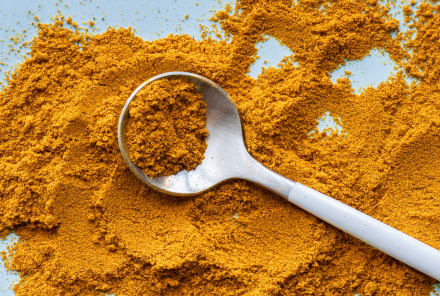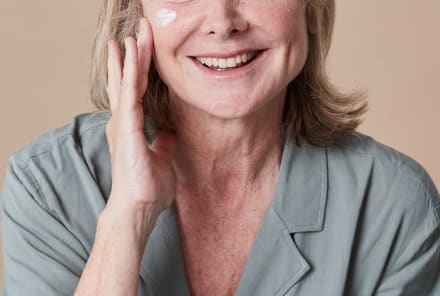Advertisement
Eating These Food Groups Can Harm Your Deep Sleep, Study Finds


Having a good night's sleep is vital for health, but unfortunately, as many as an estimated 50 to 70 million Americans1 have some sort of issue with either falling or staying asleep.
While many studies have been done in order to find the foods that help sleep, researchers at Uppsala University decided to investigate the exact ways in which diet impacts sleep, thus adding to the increasing evidence linking healthier diets and sleep quality.
Eating these foods can seriously impair sleep
In a study published in the journal Obesity, researchers tested 15 healthy young men of normal weight, making them try two separate diets for a week each. They were initially screened for their sleep habits, all of which were normal and within the range of seven to nine hours per night.
After this, the researchers conducted a randomized trial in which participants were given two separate diets: One contained a higher amount of sugar, saturated fat, and processed foods. The second, healthier diet was much lower in fat and sugar and contained no processed foods.
The number of calories in both diets was the same and adjusted to each individual's daily requirements. In terms of timing, participants ate meals within a consistent number of hours before bedtime.
Each individual ate their assigned diet for a week as their sleep quality, activity, and meal schedules were tracked. After each diet, the participants were examined in a sleep laboratory. First, they slept a normal night while having their brain activity measured during rest. On the second night, they were kept awake before being allowed to catch up on their sleep. After this, their sleep was measured once again.
"What we saw was that the participants slept for the same amount of time when they consumed the two diets," Jonathan Cedernaes, M.D., Ph.D., one of the lead researchers in this study, said in a statement. "In addition, across the two diets, the participants spent the same amount of time in the different sleep stages."
The difference, however, was in the quality of sleep. "We were particularly interested in investigating the properties of their deep sleep," adds Cedernaes. "Specifically, we looked at slow-wave activity, a measure that can reflect how restorative deep sleep is. Intriguingly, we saw that deep sleep exhibited less slow-wave activity when the participants had eaten junk food, compared with the consumption of healthier food. This effect also lasted into a second night once we had switched the participants to an identical diet."
Therefore, even though they slept the same amount and both recorded deep sleep, the participants on the unhealthy diet had shallower deep sleep and therefore were not as rested the next day as those on a healthier diet.
Ways to improve sleep health
Even if you don't feel like you're losing any sleep after eating junk food, this research demonstrates that unhealthy eating could be sabotaging your sleep quality—which is just as important as sleep quantity. Here are a few ways to switch up your diet and watch your deep sleep improve:
Try a sleep supplement: Many supplements have been proven to help induce sleep, including effective ingredients such as magnesium bisglycinate2, GABA3, and L-theanine4. Check out our favorite sleep supplements here—many of which are nonhormonal, meaning they won't leave you waking up feeling groggy and out of sorts.
Consider chamomile tea: Studies have shown that the ingestion of chamomile tea can significantly improve sleep quality5, so adding it as a nightcap to your evening routine might have some benefits.
Add the following foods to your diet: Some foods have been proven to naturally help promote sleep, such as tart cherry juice6, walnuts7, and certain fatty fishes8. Be sure to naturally incorporate them into your diet whenever possible to help sleep quality.
The takeaway
A study has found that there's a connection between diet and sleep quality, with diets higher in saturated fat and sugar impairing the quality of one's deep sleep. This suggests that a simple diet change can help improve deep sleep in the long run. There are also plenty of other easy ways to improve deep sleep, such as adding a natural sleep supplement to your routine and drinking chamomile tea before bed.
8 Sources
- https://www.ncbi.nlm.nih.gov/books/NBK19961/
- https://pubmed.ncbi.nlm.nih.gov/23853635/
- https://pubmed.ncbi.nlm.nih.gov/16971751/
- https://pubmed.ncbi.nlm.nih.gov/31623400/
- https://pubmed.ncbi.nlm.nih.gov/29154054/
- https://pubmed.ncbi.nlm.nih.gov/28901958/
- https://www.sciencedirect.com/science/article/abs/pii/S0899900705001632?via%3Dihub
- https://pubmed.ncbi.nlm.nih.gov/24812543/
Watch Next
Enjoy some of our favorite clips from classes
Enjoy some of our favorite clips from classes
What Is Meditation?
Mindfulness/Spirituality | Light Watkins
Box Breathing
Mindfulness/Spirituality | Gwen Dittmar
What Breathwork Can Address
Mindfulness/Spirituality | Gwen Dittmar
The 8 Limbs of Yoga - What is Asana?
Yoga | Caley Alyssa
Two Standing Postures to Open Up Tight Hips
Yoga | Caley Alyssa
How Plants Can Optimize Athletic Performance
Nutrition | Rich Roll
What to Eat Before a Workout
Nutrition | Rich Roll
How Ayurveda Helps Us Navigate Modern Life
Nutrition | Sahara Rose
Messages About Love & Relationships
Love & Relationships | Esther Perel
Love Languages
Love & Relationships | Esther Perel











